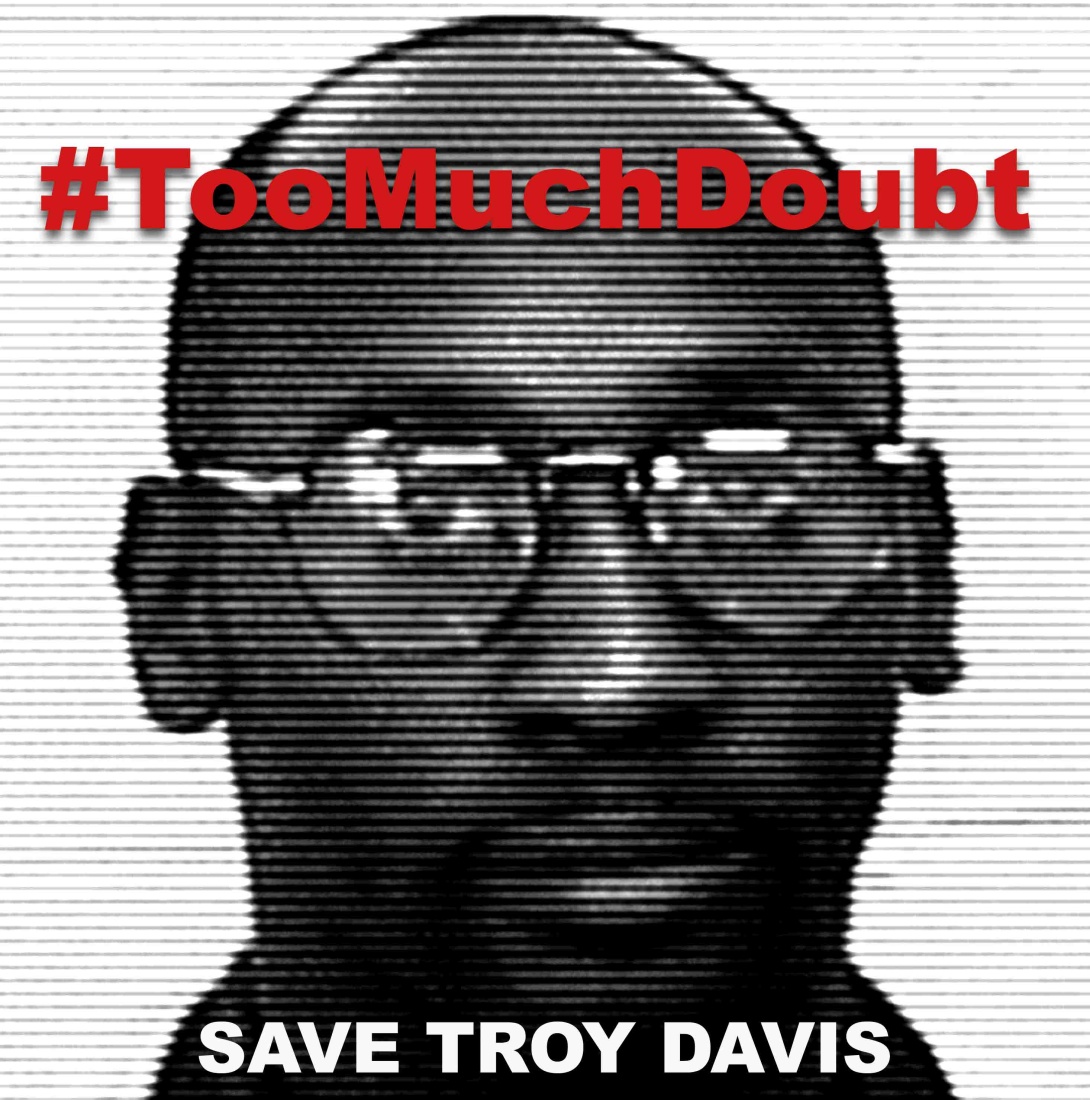Top 5 of 2011 - #3: The fight to save Troy Davis

NOTE: Facing South will be posting lightly over the winter holidays. As we close out the year, we look at Facing South's big stories in 2011. Our earlier entries in the series included the new war on voting (#5) and who's behind the attacks on climate scientists (#4).
At 11:08 pm on September 21, 2011, 42-year-old Troy Davis was pronounced dead, killed by a lethal injection administered by the state of Georgia officials some 15 minutes earlier. Davis was convicted in 1991 of killing an off-duty police officer, although several of the witnesses who had identified Davis as the shooter later recanted or changed their testimony.
The case of Davis, an African-American man, became a lightning rod for controversies over race and the death penalty in the South, with Davis' cause taken up by high-profile groups from Amnesty International to the NAACP. As Facing South reported, these efforts reached a crescendo in 2008, when the Supreme Court considered but ultimately refused to order a new trial.
The following year -- after a Global Day of Action for Davis in May -- the Supreme Court did order the U.S. District Court in Southern Georgia to considered whether new evidence about Davis' eye-witness accusers should be taken into account. In the resulting June 2010 evidentiary hearing, the Georgia judge upheld the conviction, setting in motion the final countdown to Davis' death (executions had earlier been scheduled in July 2007, September 2008 and October 2008).
The Troy Davis case was compelling on many levels: As Facing South reported, the growing doubt about Davis' innocence fueled a "new abolition movement" that pointed to the long history of false convictions and racial bias in capital punishment.
Indeed, as Facing South explored, the very roots of the death penalty in the South -- as of September 2011, 73 percent of all executions since 1976 had been in Southern states -- was linked to the legacy of slavery and racism.
The flaws in Davis' case also pointed to ongoing weaknesses in the criminal justice system, such as the critical role of eyewitness testimony in capital convictions despite its infamous unreliability.
As various Facing South contributors observed, the movement that grew to defend Davis was remarkable for its reach and impact. One example: the outpouring of solidarity for Davis in the just-beginning Occupy movement in New York City.
And as veteran leaders of the new abolition movement like Stephen Dear of People of Faith Against the Death Penalty noted, Davis' struggle permanently changed the fight to end state executions, giving it new visibility and urgency across the South and country.
As for Davis himself, he maintained his innocence to the very end, seeking to find common cause with the family of the slain police officer and calling on those seeking a fairer criminal justice system to continue their struggle. As he said moments before his death:
Well, first of all I'd like to address the MacPhail family. I'd like to let you all know, despite the situation -- I know all of you are still convinced that I'm the person that killed your father, your son and your brother, but I am innocent. The incident that happened that night was not my fault. I did not have a gun that night. I did not shoot your family member. But I am so sorry for your loss. I really am -- sincerely. All I can ask is that each of you look deeper into this case, so that you really will finally see the truth. I ask my family and friends that you all continue to pray, that you all continue to forgive. Continue to fight this fight. For those about to take my life, may God have mercy on all of your souls. God bless you all.
Tags
Chris Kromm
Chris Kromm is executive director of the Institute for Southern Studies and publisher of the Institute's online magazine, Facing South.
